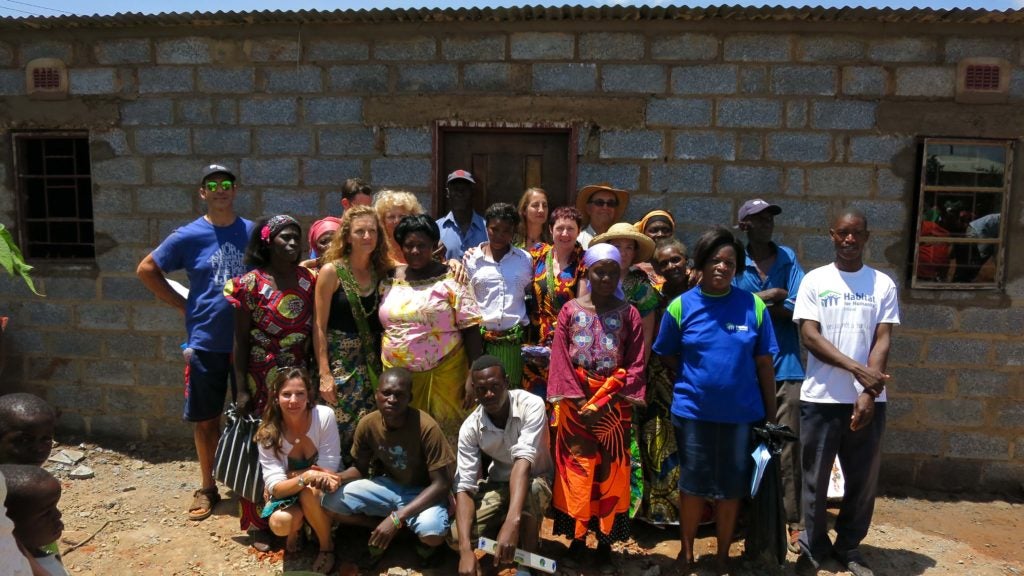Georgetown Faculty and Staff Return from Zambia Volunteer Trip

Georgetown University in Qatar (GU-Q) has been working in partnership with Habitat for Humanity for over ten years through its various programs allowing students, faculty and staff to take part in organized volunteer and service trips around the world. Recently, a group of eight faculty and staff from Georgetown University in Qatar (GU-Q) returned from a volunteer trip to Ndola, Zambia where they spent one week volunteering on behalf of the Global Village Program, building homes for orphaned and vulnerable children.
Habitat for Humanity is a non-profit organization that works with people in need, regardless of race or religion. With more than 70 national offices around the globe, and the support of volunteers worldwide, Habitat for Humanity helps by building or renovating simple homes alongside those families in need.
Habitat for Humanity-Zambia, established in 1984, is a flagship program. Since 2005, the Vulnerable Groups Housing Program has served the housing needs of more than 3000 families, and has worked with local partners to secure housing rights for marginalized and vulnerable communities.
The Georgetown University volunteer team worked side-by-side with host country nationals and the recipient families to construct two homes, along with pit latrines, in just over a week’s time. Team members benefitted from staying in the community, experiencing everyday life of local Zambians while at the same time having the opportunity to give back to families in need.
GU-Q Librarian, Jacqulyn Williams, who served as the Team Leader for the trip said: “I have served in this role for Habitat for Humanity, Global Village for more than ten years and am committed to the organization’s mission to eradicate poverty housing. Over the years, I have seen how a home has such incredible power to positively impact communities, improve the health and well-being of children, build wealth, and strengthen a family. It is always a privilege to serve as a Global Village Team Leader, to experience village life and to see the tangible efforts of our days working on the houses. It is incredibly rewarding work that leaves me feeling satisfied that I am making a difference in our world.”
Build teams can come from within a country or from overseas, known as Global Village teams. Business corporations, schools and colleges, universities, civic groups and other organizations organize and send teams to support the trip’s mission. Volunteer trips with Habitat usually last from one to two weeks and during this time volunteers work on a construction site building homes together with community partners, volunteer team members and homeowner families.
Mary Anne Mahin, the Chief HR Officer at GU-Q who also volunteered in Zambia said that this experience for her was both eye-opening and rewarding. “Habitat for Humanity is a wonderful organization. It was amazing to see the difference it makes in the lives of people all over the world. Living in the village where we were building, gave a deeper understanding of the people of Twapia and their hospitality and gratitude enriched the experience. I was shocked that the two houses we were working on were about 99% complete when we left, roof on and all. The smiles on the faces of the families for whom the houses were being built offset any sore muscles and were my reward,” said Mahin.
Since its founding in 1976, Habitat for Humanity has worked in partnership with various educational institutions and organizations to improve the lives of more than 1 million families – representing 5 million people worldwide – through home construction, renovation projects and repairs.